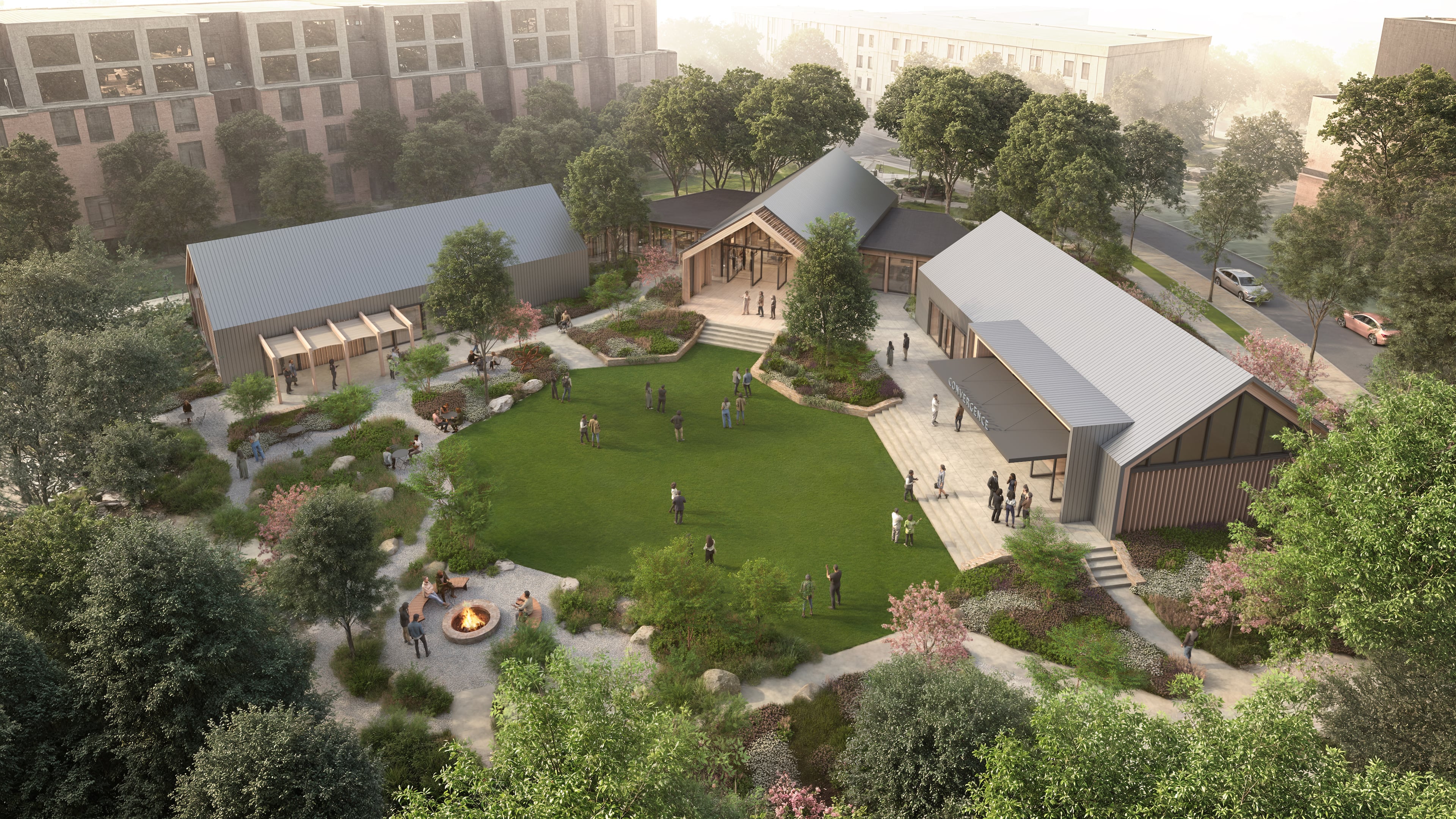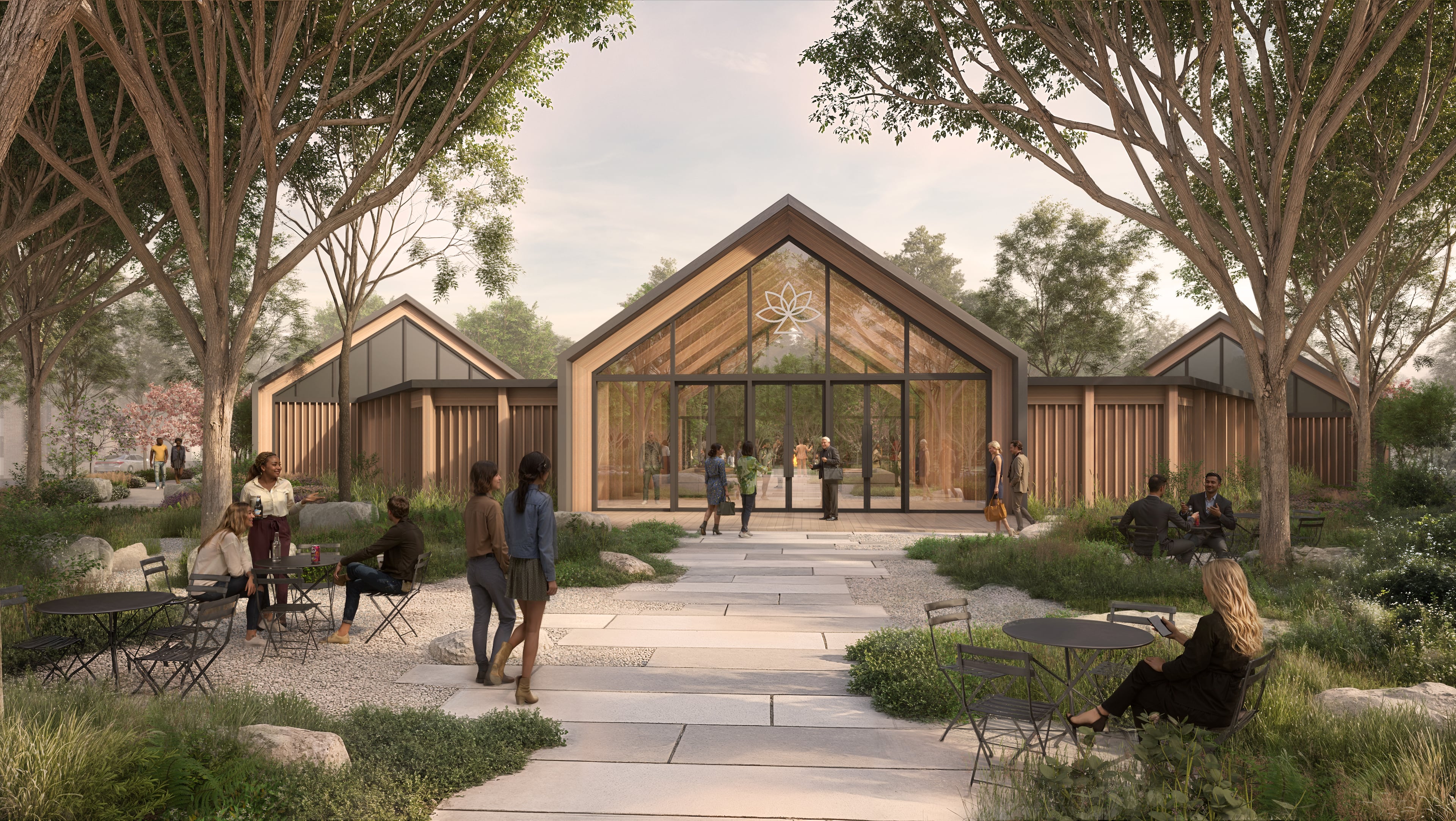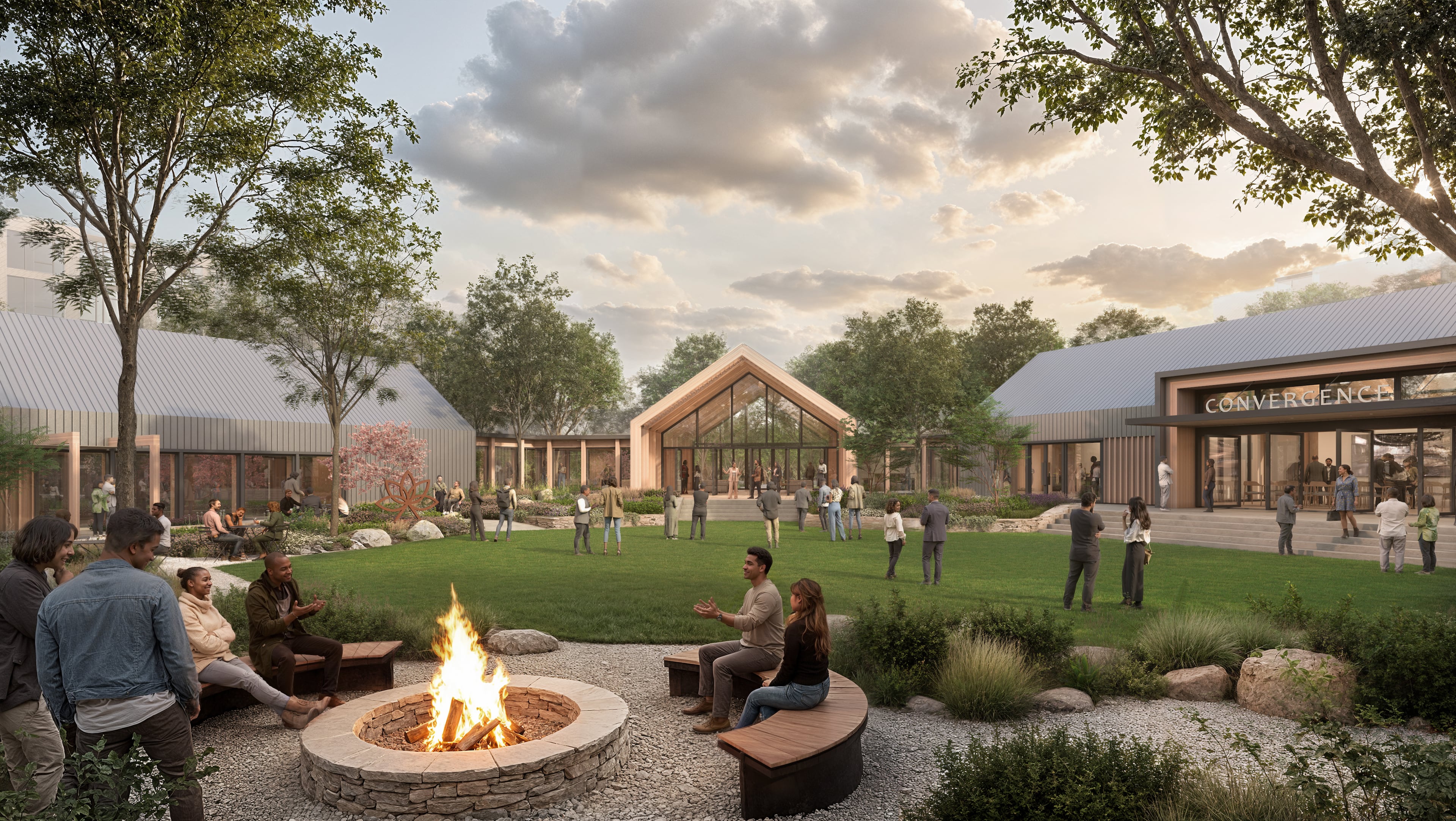2,000-acre Rowen bioscience campus announces first buildings. Take a look.

After decades of planning and preparation, one of Georgia’s largest economic development projects is about to start construction in earnest.
Rowen, a planned 2,000-acre life sciences campus in Gwinnett County near Dacula, announced Monday it will soon start building its first facility called the Rowen Convergence Center. It’s a 10,000-square-foot development intended to anchor a forthcoming mixed-use village featuring apartments, restaurants, a hotel, parks and retail.
Modeled after North Carolina’s Research Triangle, Rowen aims to provide a development that connects employers with students from Georgia’s largest universities. Rowen Foundation President Mason Ailstock said a bustling village is required to create the vibrancy needed for companies to add their facilities to the campus.
“We had a vision, we created a place with the real estate, and now we’re bringing it to life,” he told The Atlanta Journal-Constitution.
The convergence center was announced Monday at Rowen Convergence Summit at the Woodruff Arts Center in Midtown Atlanta. Rowen officials expect to start construction next year and open the center by mid-2027.
First envisioned more than 20 years ago, the Rowen project’s work so far has focused on behind-the-scenes land acquisition, zoning and infrastructure. The enormous site is equidistant from Atlanta, Athens and Gainesville along Ga. 316, aiming to attract the talents of each city’s universities.
The campus has spent the last two years undergoing $32 million of infrastructure preparation, including road and utility integration. It connects the forthcoming village area to several corporate development sites that are currently being marketed to prospective companies across the life sciences and technology industries.
That work sets the stage for the Rowen Convergence Center, which Ailstock described as the district’s “living room.”

The development consists of three buildings: one for offices, one as a collaborative workspace and another convening space for events.
Ailstock said the buildings’ architecture is inspired by “barns and bridges.” The former harkens to the property’s history dating back to Andrew Jackson’s Indian Wars and the slave labor used in the cotton boom. The latter highlights the connectivity central to Rowen’s pitch, including pedestrian bridges between the convergence centers’ buildings.
“Having a destination that is amenitized and that has an amazing project like the convergence center that anchors those partnerships … is really important,” Ailstock said. “It needs to be surrounded by a great hotel, a coffee shop, a great park and open space and multifamily residential.”
Earlier in October, the Rowen Foundation issued a request for proposals to seek development partners for the village’s first residential phase. Ailstock said companies that join Rowen in the future will want the option for their workers and researchers to live on the campus.

Rowen has yet to land its first pad site development, but Ailstock said there are multiple prospects. The Georgia Department of Economic Development has several “nationally competitive (prospects) with confidential project names” interested in joining Rowen, Ailstock said.
“I’m encouraged even in spite of some of the global uncertainty that (Rowen will) rise to the top as a site in Georgia,” he said.
Georgia has targeted the bioscience and life sciences sectors for decades, trying to rival other hubs like North Carolina and Boston.
Georgia Tech’s Science Square district in Midtown has made progress leasing lab space to startups and medical research teams, including finalizing a 159,000-square-foot lease two weeks ago with Shriners Children’s. Additional phases are planned.
Pharmaceutical company Shire also operates a factory about an hour east of Atlanta near the site of Rivian’s planned electric vehicle factory.



